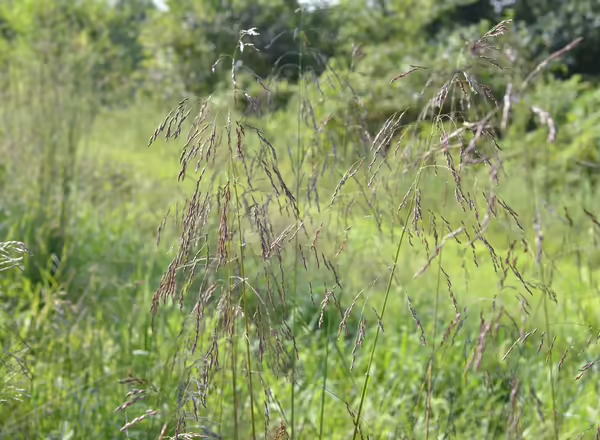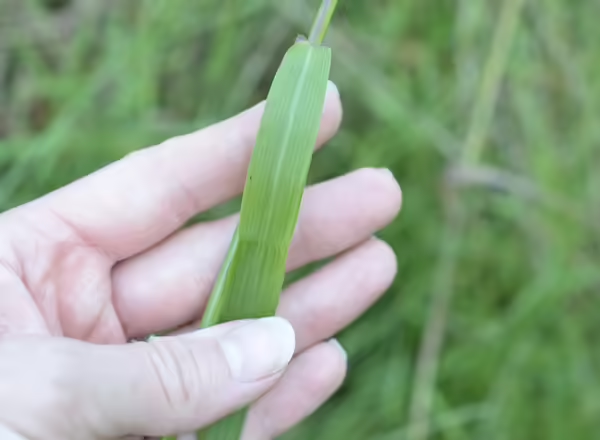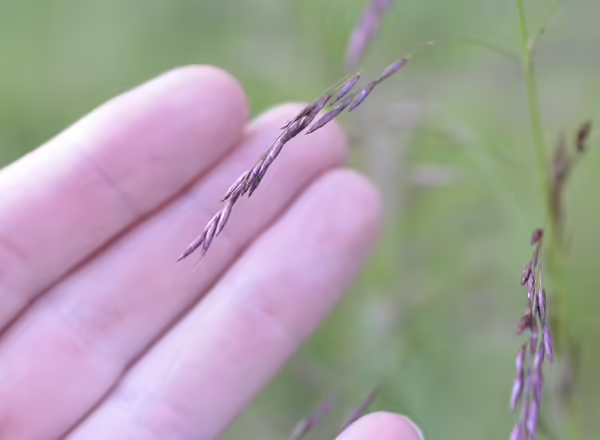Found in all but the northernmost counties of Illinois, Purpletop is a relatively common grass. It is a native species, but you’ll often find it in disturbed areas, such as fields and roadsides. It can be found in savannas and woodland borders, as well. It can be used as livestock forage or cover for wildlife.
Vegetative characteristics
Purpletop usually grows 3 to 5 feet tall. As a warm-season grass, it will put on much of its height and flower in the heat of summer. Its stems are smooth and leaves are broad. You can find hairs on the outside of the leaf sheath in the collar region, right where the leaf blade becomes the sheath.
Purpletop’s purple top
This grass becomes infinitely simpler to identify if you find it in flower. The inflorescence is a panicle, with open airy branches that droop at their tips. The spikelets are purple in color and held on branches.
Need help to identify? Run your hand from the stem up through the inflorescence. This grass produces an oil that rubs off when touched, which leads to its other popular common name, Grease Grass.
Look-alikes
There are some other grasses that you might confuse with Purpletop, but neither of these grasses produces the oil that Purpletop does.
- Redtop looks similar but is smaller in size, has red spikelets, and blooms earlier than Purpletop.
- Purple Lovegrass is also smaller in size, no taller than 2 feet. It has a much more densely branched panicle with purple spikelets but it doesn’t have the open, airy drooping branches.
Need a refresher on grass identification terms, like ligule and spikelet? Check out this blog post!




Purpletop, Tridens flavus, is a native, warm season grass that can be found in savannahs, fields, and roadsides, and grows three to five feet tall. Its stems, rachis, and spikelets are covered in a thin layer of an oily substance, leading to its other common name of Grease Grass. At the...